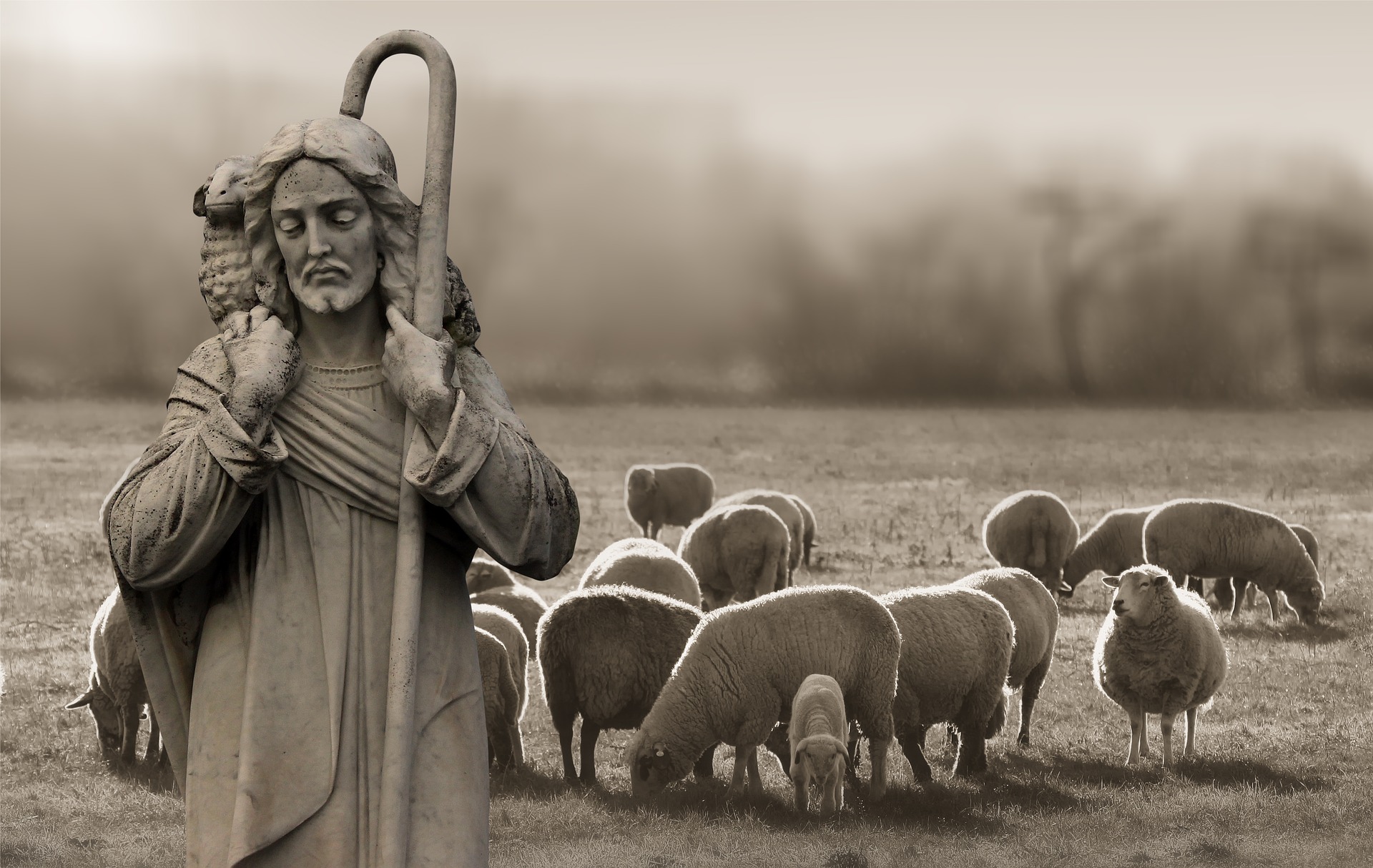
Hope and Help from Psalm 23 (Part 4 of 4)
This installment of Hope and Help from Psalm 23 shows how our Good Shepherd provides protection and power for our life. Part Three reveals how God puts Himself on full display by providing Himself as our life’s satisfaction. Part Two shows us how the phrase “For his name sake” brings hope and help in desperate situations In Part One we see how the phrase “The Lord is my shepherd” brings comfort and care to sufferers.
By Dale Porter
In my last blog, I referred to “Amazing Grace” and how in many ways its message corresponds with Psalm 23. The Good Shepherd in Psalm 23 is a gracious person and provider for your life long pursuit of Christian sanctification. You see the Good Shepherd’s grace toward believers in Christ through His unmerited favor in salvation and transforming help in God’s Word. John Newton wrote: “Tis grace hath brought me safe thus far, and grace will lead me home.” These words are fitting to end our look at Psalm 23. When focusing on what the Good Shephard has done for you in this life time, you should agree He has brought you safe thus far and will lead you home.
God’s grace should make you delight in your Good Shepherd. Verse 4 reads, “Your rod and your staff, they comfort me.” Your delight is that He provides protection and power for your life. In real life, the rod and staff in the hands of a shepherd wields power for protection of his sheep. Once again enemies hid and are ready to pounce on the sheep. A good shepherd doesn’t run from danger and possible death. He is willing to lay down his life for the sheep. How much more should you delight and have comfort in knowing your Good Shepherd laid down His life for you. He laid down his life by absorbing His Father’s wrath for your sin. He died for you and put Himself in your place to let His Father extend His rod of power to raise Him from the dead.
Earthly shepherds have “rods” in their hands at all times and are ready to protect the sheep. This “rod” extends beyond the hand and has weight on it. It is a lethal weapon in the hand of the shepherd. He can hurl it at a distance to wound or kill a predator. He can hurl it more lightly to get the wandering sheep back in the fold.
The “staff” likewise in the hand of a good shepherd can help sheep. This “staff” is long and stands higher than a shepherd. It has a curve at the top. When the shepherd leads the sheep, he might look back and see sheep eating poisonous weeds or getting to close to the cliff. A good shepherd reaches back with the staff and brings the sheep to safety.
The “rod” speaks of the spoken Word. In the hand of God, you can say that it is an extension of God’s mind, will and intentions in dealing with men. It implies authority. It carries convicting power toward sin and gives the impact of “Thus says the Lord.”
This should bring you comfort. How is this so? Well, we live in a time when there are confusing voices and strange philosophies presented to you. It is reassuring to know you can turn to Word of God and be led by the Good Shepherd down the paths of righteousness. What a comfort to know the Shepherd’s Word is clear-cut and a powerful instrument to show you how to grow and change to please Him.
Another aspect of the “rod” is discipline. God uses discipline for your welfare, to keep you from sin and produce righteousness in you. Hebrews 12:11 proclaims: “ For the moment all discipline seems painful rather than pleasant, but later it yields the peaceful fruit of righteousness to those who have been trained by it.”
The “staff” in the shepherd’s hand speaks of his words of love, comfort, care and concern. A shepherd may use his staff to gently bring mother and kid back to a good relationship if they are separated. Another way the staff is used by the shepherd is draw sheep to him for examination of its health. The staff is used by the shepherd to guide the sheep out danger and difficult routes. The shepherd’s staff frees sheep from thorn bushes and rocks.
God—the Good Shepherd—can use you and His staff—the Word—to bring back wayward wandering sheep. James 5:19 simply says “brothers.” That’s not just your pastors. This is you as a mature believer who looks out and sees wandering believers and you as a brother reaching out with your staff—the Word of God—in love, care and concern to bring back a wayward believer. Listen to James. “My brothers, if anyone among you wanders from the truth and someone brings him back, let him know that whoever brings back a sinner from his wandering will save his soul from death and will cover a multitude of sins.”
Here’s another way to give praise and delight to your Good Shepherd. You prepare a table before me. David concludes his thought with: “in the presence of my enemies.” David again draws from his shepherding background. The picture is of a shepherd taking his sheep up into the higher elevations. In these heights during the warmer seasons, a shepherd can find open “tablelands” of lush green grass. The point is the Good Shepherd prepares a healthy table diet from the Word of God.
When the shepherd leads his sheep to a lush tableland, he knows there are dangers. The green grass can have pockets of toxic and poisonous plants. A shepherd picks them out and keeps the sheep free of disease or death. Your Good Shepherd wants you to feed on the toxic free table of God’s Word. I Peter 2:1-3 reads this way: “So put away all malice and all deceit and hypocrisy and envy and all slander. Like newborn infants, long for the pure spiritual milk, that by it you may grow up into salvation— if indeed you have tasted that the Lord is good.”
Your Good Shepherd wants you to drink from God’s Word that is toxic free. Peter addresses mature believers who are facing suffering. He tells them like you to trust and obey God during times of suffering. It’s easy as Christians in hard situations to respond amid suffering with malice, deceit, hypocrisy, envy and slander.
You again delight in your Good Shepherd and give praise to Him, because He anoints your head with oil. Oil was used as a medicine on people and animals during Bible times. The Good Samaritan took his oil and treated a bruised and bloody man. It cost him something to do this. Here the image again points to a shepherd treating tormented sheep. The goodness of the tableland grass is good for the sheep. However, in the summer time in high tablelands insects breed well. These insects lodge on the sheep’s head and go inside their nose and lay eggs which produce more flies. If you look at the sheep’s head, flies are just buzzing around it! You can just image what torment these sheep go through! It drives them so crazy that the sheep butt their heads against rocks, trees and each other. They just want rid of these tormenting flies!
What does a shepherd do in this situation? He takes his flask of oil and pours it over the sheep’s head. He gets inside the nose and goes inside the ears. It may be a difficult task! The sheep may put up a fight at first, but with great strength and care the shepherd puts the oil where it needs to go. When the oil takes effect, the sheep are relieved, comforted and happy.
As believers in Christ, we have plenty of flies flying around and tormenting us. The flies of doubt, fear, anger, worry, bitterness and resentment would like to lodge in our heads—our thinking. God wants us to take the oil of God’s Word and place inside our thinking to rid our thinking from sinful flies. Philippians 4:8 instructs you with these words: “Finally, brothers, whatever is true, whatever is honorable, whatever is just, whatever is pure, whatever is lovely, whatever is commendable, if there is any excellence, if there is anything worthy of praise, think about these things.”
David mentions also that his cup runs over. This could refer to the fall season when sheep have fattened and free from insects because air temps are cooling. The sheep are fit and strong. The shepherd looks back over the year: the seasons had sheep lying down in green pastures, their souls restored, being led by still waters, going through the valley of shadow of death, the rod and staff being used for the sheep’s welfare and oil being used to treat pesky flies. All in all, it’s been a good year! Can you look back over your time with your Good Shepherd and say: “It’s been a good year because of His care and concern for me?” Hebrews 13:15 reminds you: “ Through him then let us continually offer up a sacrifice of praise to God, that is, the fruit of lips that acknowledge his name.”
Psalm 23: 6 loudly proclaims this delight: “Surely goodness and mercy shall follow me all the days of my life.” What are you to delight in? You understand God has His eye on your life. I hope you delight like I do that your Good Shepherd is described in terms of goodness and mercy. This describes our Good Shepherd’s care toward you in graciousness and love. Notice, however, the words “follow me.” A lot of Psalm 23 has your shepherd out front leading you. This time David pictures your shepherd God as being behind the flock and following you. This means God has His eye on you and looking out for danger. That danger could be self-imposed when you wander from His ways (Psalm 119:67). Or, the danger might be enemies to the truth who would want to harm you (Acts 20:29-30). What comfort to know God has His eye on you as a believer to help you abide, remain and preserve in the faith. II Chronicles 16:9 reminds you: “For the eyes of the LORD run to and fro throughout the whole earth, to give strong support to those whose heart is blameless toward him.”
The final delight is found in verse 6. “And I shall dwell in the house of the Lord forever.” Those words are something to hold on to when facing death or telling a Christ follower who will die. A believer in Christ has the hope that death puts one in heaven; a living relationship with God is forever, death will be no more and the promise of a new heaven and earth (Revelation 21:1-4). In addition, as a Christ follower you dwell in the house of the Lord with God’s people— the church.
Remember the focus of Psalm 23 is on the Good Shepherd. Out of His greatness, goodness and glory comes gracious ways of caring for His sheep. You have every reason to delight and sing praises for your Great Shepherd of the sheep!
